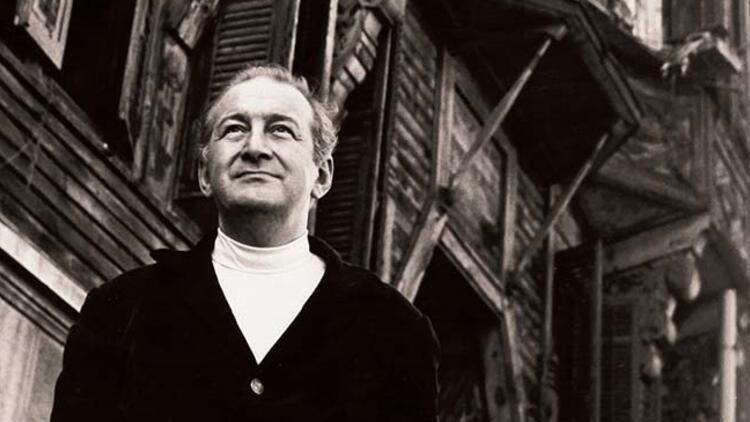
Turkey on May 7 remembered Haldun Taner, pioneer of Turkish cabaret theater, on his 34th death anniversary.
Taner, also a renowned playwright and short story writer, was born on May 16, 1915, in Istanbul to a family of bureaucrat Ahmet Selahattin Bey and Seza Hanım.
Following his father's death when he was five, Taner and his mother moved to the residence of his grandfather İsmail Hamit Bey, who was the head of the first printing house established during the Ottoman period.
After graduating from Galatasaray High School in 1935, Taner started his higher education in economics and politics at Heidelberg University in Germany. He had to drop out of school as he suffered from tuberculosis and he returned to Turkey in 1938.
Taner's first short story
In 1946, Taner's first short story Tohmet (Indictment) was published in Yedigün magazine. He later wrote vignettes plays, cabarets, scripts, and satires in many other magazines. He also wrote a book – titled Long Live Democracy – in 1949.
Taner graduated from Istanbul University in German language and literature in 1950. He started teaching at the Faculty of Journalism at Istanbul University the same year.
He won the first prize in the international competition organized by New York Herald Tribune in 1953, for his short story – titled "It Was Raining in Şişhane" ("Şişhane'ye Yağmur Yağıyordu" in Turkish). He was also chosen as the favorite storyteller of the year in 1956 by Varlok magazine.
He went to Max Reinhardt the University of Music and Performing Arts in Vienna, Austria in 1954 and continued his education for two years. He also worked as an assistant director in some theaters in Vienna.
Taner's book Onikiye On Kala ("One to Twelve" in English), published in 1954, became the first book to receive the Sait Faik Story Awards that was launched in 1955.
Establishing Devekuşu Cabaret Theater
Being a successful writer, Taner also focused on theaters since the 1960s and pioneered the establishment of the cabaret theater in order to present critical plays on current events.
Taner, along with his colleagues Ahmet Gülhan, Zeki Alasya, and Metin Akpınar, established Devekusu Cabaret Theater in Istanbul in 1967. The theater reached a wide audience with its unique style.
In 1968, he established Language and Culture Center Private Theater School. Next year, Taner and his colleague Münir Özkul established "Bizim Tiyatro" ("Our Theater" in English). He and Gulhan also established Tef Theater Company in 1978.
Taner also wrote columns for Tercüman and Milliyet newspapers for many years.
The Ballad of Ali of Keshan: Turkey's first epic theater
Producing successful examples of dramatic works of theater, Taner also wrote improvisational theater and meddah – public storytelling in Traditional Turkish Theater.
Taner's Keşanlı Ali Destanı ("The Ballad of Ali of Keshan" in English) was Turkey's first epic theater. First staged on March 31, 1964, in Istanbul, the play was later staged in Germany, England, and then Czechoslovakia and Yugoslavia.
The Ballad of Ali of Keshan tells the story of Ali, who lives in a ghetto in Istanbul and is sentenced to prison for a crime he did not commit. However, Ali becomes a hero for his alleged murder of a much-hated bully. He assumes the personality that his environment forces upon him, and in the end, he actually becomes a murderer.
Later in 1969, Taner was awarded by the International Festival of the Humor of Bordighera Award for his book Sancho'nun Sabah Yürüyüşü ("Sancho's Morning Walk" in English). He also grabbed the Turkish Language Society Theater Awards in 1972 for his play Sersem Kocanın Kurnaz Karısı ("The Cunning Wife of Stupid Husband" in English).
Taner's style, later ages and death
Taner often included human and human values, nature, life, time, psychological states, ability to choose, selectivity and abnormality in his stories. Focusing on social issues and dealing with every part of the society in his stories, Taner wrote in a cynical style using the individual's lifestyle in society, the inconsistencies, contradictions, and hypocrisy of people from different quarters.
The author also served in the UNESCO's Culture Commission.
Known for his humble and graceful personality, Taner passed away at Haydarpaşa Hospital in Istanbul on May 7, 1986. Upon his death, the Istanbul City Theater was named after him.
Since 1987, Haldun Taner Story Award has been organized by Milliyet newspaper.